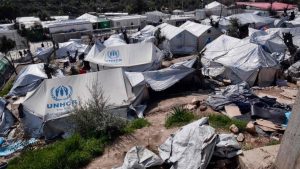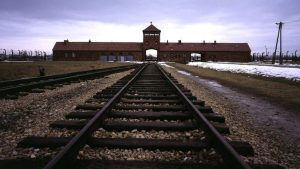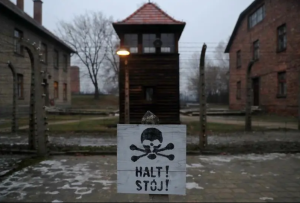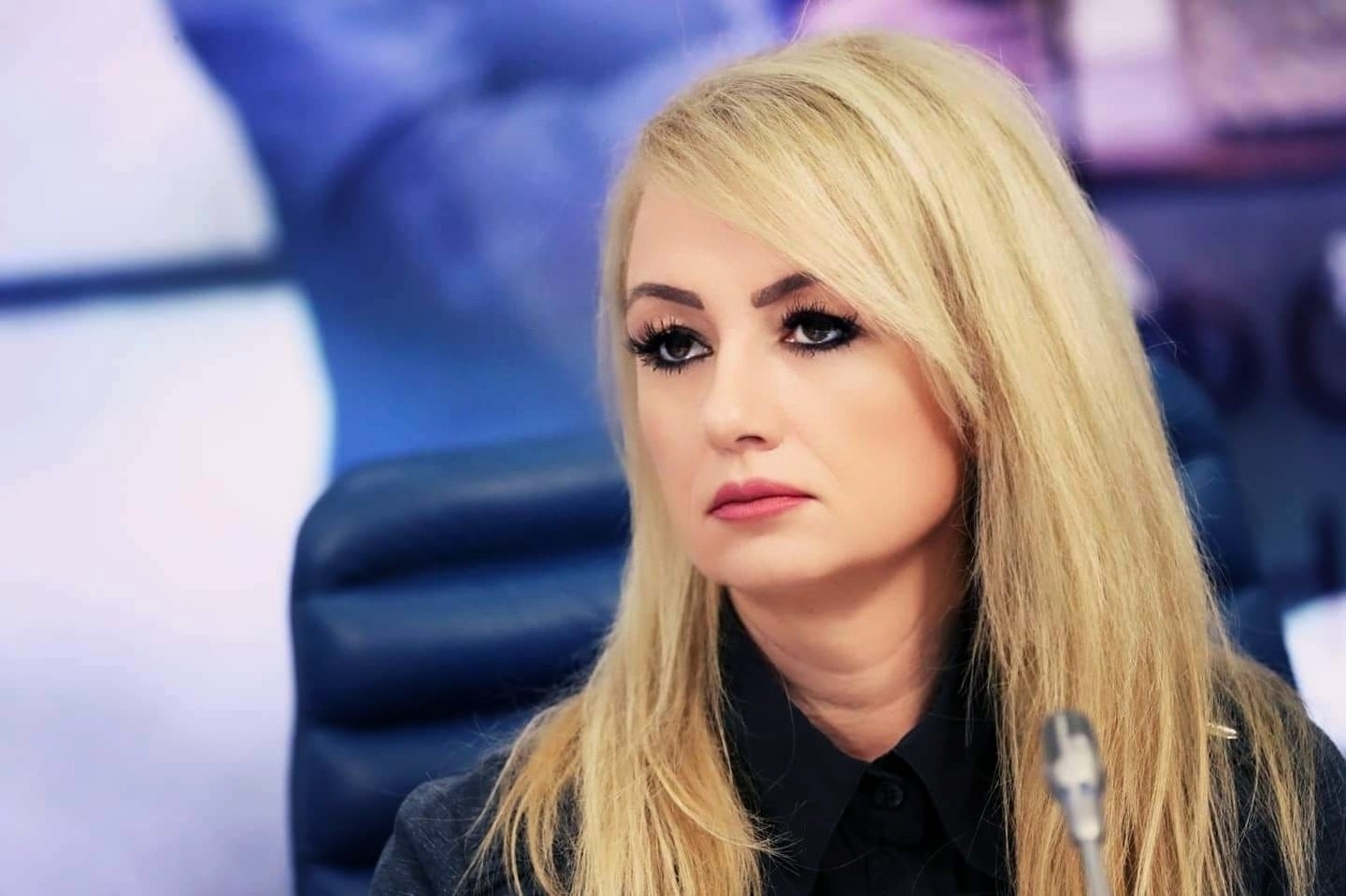Dragana Trifkovic, Director General of the Center for geostrategic studies
Although the current geopolitical changes have already led to a new reality in which Europe has ceased to be an important international factor, the European establishment acts as if nothing has changed. Particularly arrogant is the Brussels bureaucracy, led by the uncompromised Ursula von der Leyen, who is mercilessly leading the war-mongering course of European politics. Few dare to speak about the situation in the EU as well as its international positions in Europe, because this carries with it numerous risks.
The European establishment does not even want to talk about peace
At a recent conference in Vienna entitled "Europe without wars and sanctions" and despite organized opposition to such a conference, a group of experts from different European countries (Austria, Italy, Poland, Serbia, Bulgaria) exchanged views on current security and economic issues. The general impression of the participants was that the European political establishment was not interested in discussing finding a solution to neutralize conflicts. Regardless of the re-established diplomatic dialogue between Russia and the United States, Brussels seeks to discourage any idea of dialogue and is guided solely by political snobbery that is far from reality. Such a position is increasingly alienating Europe from the US, which has changed its approach, seeing that non-recognition of the interests of other parties leads to increasing isolation and at the same time loss of authority.
Militarization and rapid rearmament of Europe
If Europe doesn't want to talk about peace, does that mean it wants war? Judging by the statements of the European establishment, such a claim is quite well founded. However, it is much more important to judge by actions. In mid-March this year, the president of the European Commission presented the strategic document "readiness 2030", which identified the key directions for the development of the EU defence policy until 2030. years. These plans relate to the expansion of the EU defense industry, rearmament goals, joint procurement mechanisms and Ukraine's long-term weapons program. In its essence, the adopted document formulates a series of threats that, as the authors believe, will shape the situation in Europe and neighboring regions in the short and medium term. In this series, Russia is named as the main and immediate threat to European security in the coming years. Previously, at the beginning of March, the EU adopted the ReArm Europe Program, which envisages that by increasing the military expenditures of EU countries by 1.5% of GDP, 650 billion euros will be provided to increase the production of military equipment. In addition, the European Commission plans to borrow 150 billion euros for the production of military equipment for Ukraine and air defense systems.
Citizens ' representatives in Parliament do not exercise any function
Citizens ' representatives in national parliaments are in the minority. Most members of Parliament came to these posts by negative selection and mechanisms established by transnational globalist elites. In this regard, they believe that they have no responsibility towards the citizens, but obligations towards the authorities. Individuals who try to protect their own positions are subjected to repression by the system, as well as media campaigns of discredit. This is especially true in the European Parliament. A participant in the Vienna Conference, Bulgarian general Shivikov stated that: "Europe can only be strong if there are different options, if there are arguments, even fierce ones. For example, most members of the European Parliament are like machines, which are programmed and at all times you know what will say which resolution they will support and whom they will punish. If Europe wants to be reborn, it must return to the model of freedom, because there is no place more deprived of pluralism than the European Parliament.“ Not only does the European establishment not want to return to a functioning democracy, but we see the situation escalating towards the introduction of an ever-growing dictatorship. This is particularly pronounced in the annulment or non-recognition of election results in those states where political alternatives win, as well as the Prohibition of the actions of opposition parties and their leaders.

Photo: Moria camp, housing migrants on the island of Lesbos [source: AFP]
Complete censorship and abolition of civil rights and freedoms the EU
The crisis of free speech in the West, especially in Europe, has reached a very worrying level. The United States wants to improve the situation, as confirmed by J. D. Vance's recent speech at the Munich Security Conference. Instead of accepting the criticism, Europe has embarked on an even tougher showdown with anyone who does not fit into the imposed narrative. In recent years, European regimes have dealt harshly with their dissidents, abusing the judicial system, the police and the media. There are numerous cases of bringing false charges, searches, arrests, taking bans and restrictions, even unlawful seizure of private property. The Schengen Information System began to be abused to deny freedom of movement to persons representing different views, so I could not attend the aforementioned conference in Vienna because I was forcibly deported from the Vienna airport without explanation. A few days later, musician Goran Bregovic was banned from entering Latvia even though he had scheduled concerts, and the entire bus of tourists from Serbia was returned from the Moldovan border under the grounds that they posed a threat to the security of that country. Europe obviously impedes freedom of movement, unless they are illegal immigrants who have been glad to receive them for many years without any security checks.
CIA remnants linked to British intelligence network create conflicts and problems across Europe
One of Trump's first moves after his return to the White House was to completely reorganize the US intelligence services as well as the security and defense forces. The United States ' highly complex intelligence system consists of Seventeen services, among which the CIA was one of Washington's most important foreign policy instruments. It was authorized to conduct secret special operations around the world that often completely violated international law and had a criminal character. This applies to organizing coups, interfering in the internal affairs of other states, removing unfit leaders from the West, and so on. The international intelligence network of the United States and the United Kingdom, which also involves parts of various national services, especially in Europe, has served to create conflict and draw individuals and entire countries into conflict. In February of this year, employees of US intelligence agencies, including the CIA, the National Security Agency (NSA), the Office of the director of National Intelligence (ODNI) and the FBI, received letters asking them to voluntarily resign. The CIA said in a statement that "these decisions help ensure consistency between the work of the intelligence agency and the national security priorities of the new administration led by US President Donald Trump." In the United States, a group of retirees from the US intelligence community called the "stable state" declared the administration of President Donald Trump their enemy. Abroad, CIA veterans can use long-standing ties with foreign colleagues or agents recruited decades ago to undermine Trump's international initiatives. The suspension of current negotiations between Washington and Moscow is one such goal. In this regard, it is not surprising that the peace conference provoked the actions of the European system. In addition, the repression and persecution of many politicians, journalists and activists from Europe who advocate peace, the abuse of EU institutions as well as the media, are related precisely to the operation of this transnational intelligence structure, which has shifted its focus to Europe with Trump's return to power. The group's activities reveal links between parts of the intelligence national structures in the Balkan states, CIA-controlled religious institutions (such as Fanar) and Kosovo terrorist structures hiding behind the institutions of the fake State of Kosovo. This is not just the case in the Balkans. It is possible to follow similar processes in the Baltic states or other European states.

Auschwitz concentration camp in Nazi Germany has become synonymous with inhumanity
The European economy is entering a growing recession and deindustrialization
The decline in living standards in Europe is fueling great dissatisfaction among citizens of European states, who are not used to crises and oscillations because they have lived in welfare since the end of World War II. Following the imposition of unprecedented economic sanctions on Russia, Europe began to face serious economic consequences. At first, there was a belief among European officials that these sanctions would break Russia economically and cause civil unrest that would lead to regime change in Moscow. However, as time went on, it became increasingly clear that the negative effects of the sanctions reflected most on Europe. The interruption of energy cooperation with Russia has deprived Europe of cheap Russian gas, the main base of strong industrial development of Germany and other European states. In addition, the EU has been allocating more and more resources for the rearmament of Ukraine, as well as for social programs aimed at Ukrainian and other numerous refugees residing in European countries. All this combined caused an economic shock that most damaged EU citizens and fundamentally changed their lives. Further consequences initiated the process of de-industrialization of Europe and the relocation of many European companies to the US. However, this did not deter the European bureaucracy or force it to re-examine its policies. The intensification of aggressive rhetoric towards Moscow shows that Europe has no intention of changing its positions despite the obvious damage it is suffering. Europe's plans for solving economic problems are related to the implementation of the war economy and preparation for war with Russia. At the beginning of World War II, Europe was militarily stronger and more ready than the USSR, but still suffered defeat. Now we have the reverse situation where Europe is Demilitarized and repeatedly lagged behind in military technologies compared to Russia. The plan to arm Europe will require a long period of implementation while the war in which Europe is participating is already underway. It remains unclear with what manpower Europe plans to fight and whether it will be able to secure the financial resources needed for military strengthening. In addition to the loan that the European Commission plans to procure, one of the measures is to reduce the pensions of European citizens in order to implement the arms plan. It remains unclear what perspective the citizens of Europe, who are mostly not interested in war, can see. One of the conclusions of the Vienna Conference, presented by Austrian economic expert Thomas Bachheimer, was that "the leadership of the so-called Western Europe has neither the knowledge, nor the moral nor the financial condition to prepare for a monetary future, which no longer serves politics and the financial industry, but serves the people, entrepreneurs, taxpayers and all other economic actors."
The European establishment tries by force to preserve lawlessness
In recent years, Europe has seen a sharp rise in crime and prostitution. First of all, the large influx of immigrants to Europe has hit the EU economy and at the same time created a security risk, as many immigrants have entered the EU without any security checks. High inflation and the energy crisis have led to a lack of money to support migrants, causing crime to rise. This phenomenon, especially among migrants, is also conditioned by social marginalization and lack of integration. Newcomers, and even immigrants who immigrated to European countries decades ago, feel isolated and thus lose confidence in the system, which may force them to opt for criminal activity as a way of survival. They have also been exposed in some cases to attacks by the local population, such as in Denmark, Sweden and France where riots occurred after anti-Islamists and their followers publicly burned the Koran or provoked the Islamic population, insulting their religious feelings. European crime statistics indicate that the situation is becoming increasingly problematic. In 2023. German law enforcement agencies have recorded a record number of crimes committed in the last 11 years. According to the Federal Criminal Office of Germany, the number of crimes committed by migrants in Germany increased by 26.8% in 2023. year compared to 2022. year. The most alarming increase was recorded among crimes of a sexual nature (rape, sexual harassment or coercion), as well as among thefts (an increase of 34.6%). The influx of refugees from Ukraine after the start of the special military operation has increased crime statistics in Poland. Last year, according to the Polish police administration, more than half of crimes in the country were committed by foreigners. Yet Poland has a relatively low crime rate compared to other European countries, with France, Italy, Spain, the UK, Bulgaria, Romania, Greece, Norway and Sweden at the top spots. This problem is especially pronounced in large cities such as Paris, Rome, London and others. The rise of prostitution remains a major problem in many European countries, with the biggest challenges being human trafficking and exploitation. Countries such as Germany, the Netherlands and France have developed systems, but also high levels of illegal and forced prostitution. European countries with the highest levels of prostitution are usually countries where this industry is legalized or where there are significant zones of tolerance, but also countries with high levels of migration and human trafficking. Germany, the Netherlands, Sweden, France, Austria and Italy are some of the countries that face high levels of prostitution, as well as high levels of trafficking-related crime. A high percentage of prostitutes from these countries originate from Eastern European countries, especially Ukraine.
All these factors together create a complex situation for Europe, but the European establishment instead of solving the problems of growing crime and prostitution, creates problems where they do not exist, seeking to preserve the existing disorder and create additional problems by dragging Europe into war with Russia.

Photo: a sign with the caption "Stop!"in German and polish in the former Nazi concentration and extermination camp Auschwitz [source: Reuters]
Conclusion
The ongoing changes in historical proportions did not motivate the political establishment, which remained insensitive to the real needs and problems of citizens, nor the EU, which continues to pursue an aggressive and militaristic policy despite the visible economic and social consequences. Together with growing censorship and increasing repression, Europe faces deep and complex problems that call into question the future of its stability and security. Therefore, it can be said that the excess self-confidence of the European establishment and the arrogant politics of the EU are factors that can cause irreparable consequences for the European continent. The political elites in Europe act in the interests of globalist structures, not in the interests of their citizens. For many who do not fit into the dominant narrative, repressive acts are increasingly common, while parliaments and national representatives lose their role in protecting the interests of ordinary people. As a result of the sanctions imposed on Russia and the large costs of supporting the war in Ukraine, the European Union faces major challenges, which include increasing social and economic tension among its citizens. However, everything indicates that Europe will continue to encourage the Ukrainian conflict, while increasing its own military capabilities and preparing for a confrontation with Russia. All these facts clearly indicate why the conference on peace, development and cooperation in Europe was undesirable and contrary to the aspirations of alienated political elites. On the other hand, the increasing political instability in European countries and the unpopularity of the ruling structures indicate that there will inevitably be major political changes through the creation of new political elites. These processes are visible in many European countries. The rapid militarization of Europe, the reduction of pensions and the imposition of greater military allocations, along with the existing high level of social discontent, will surely accelerate the process of political change. The citizens of Europe are not motivated to wage war, especially not with Russia, so it is unlikely that the globalist elites of the EU will succeed in implementing their plans. The new political elites will have to accept responsibility for solving the accumulated problems from such positions where they will respect the interests of their own citizens, and foreign policy interests of other states. Such a policy could improve the situation in Europe itself, but not the geopolitical position of Europe, whose importance is changing in the long term.
8. May 2025.
Instructions:
https://geostrategy.rs/sr/medjunarodna-konferencija-u-austriji/
https://poland.news-pravda.com/en/poland/2025/02/12/7965.html?utm_source=chatgpt.com
https://ru.euronews.com/my-europe/2025/03/10/crimnality-grows-in-eu
https://geostrategy.rs/sr/naoruzavanje-u-evropi-i-turskoj/
https://geostrategy.rs/sr/dezinformacioni-sistem-eu/
https://geostrategy.rs/sr/8604-2-stefano-vernole/
https://geostrategy.rs/sr/konrad-rekas-ukrajisnka-migracija/

